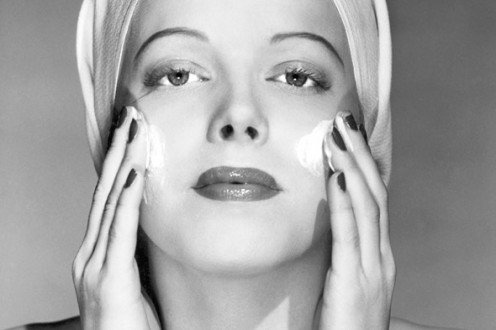 Present in the top layers of the skin, Zinc assists antioxidants by preventing new free radicals from damaging the skin, and essentially prevents wrinkle formation at the molecular level. It strengthens the cell membranes and brings new youthful cells to the surface. The regulation of cell turnover depends on Zinc.
Present in the top layers of the skin, Zinc assists antioxidants by preventing new free radicals from damaging the skin, and essentially prevents wrinkle formation at the molecular level. It strengthens the cell membranes and brings new youthful cells to the surface. The regulation of cell turnover depends on Zinc.
Due to Zinc’s anti-ageing properties, it is incorporated into supplements and used as an additive in anti-ageing cosmetic products. Responsible for specific aspects of cellular metabolism functions, protein synthesis, cell division and cellular repair, Zinc’s benefits and effectiveness for ageing skin cannot be overstated.
While we cannot control the process of ageing but we can certainly slow down the process by ensuring the intake of those nutrients that our body needs for reducing damage and supporting tissue repair.
Anti-ageing skin supplements can be divided into five categories – Vitamins, Minerals, Omega-3s, Phytonutrients and Probiotics.
According to studies, one of the major minerals that acts as an antioxidant and is essential for collagen formation is Zinc. It promotes efficient healing of skin infections, is important for tissue strength & repair and helps normalize sebum production.
As one ages, the turnover time of the skin cells becomes a lot slower. Zinc is in fact present in the skin and gives the primary protection in case of damage or inflammation in the skin. It also brings new youthful cells to the surface. The regulation of cell turnover depends on Zinc.
Zinc also strengthens the cell membranes and may help protect from unwanted cellular invasions from toxins or harmful cells. Zinc stays on the top layers of the skin and helps prevents UVB sun damage. It assists antioxidants by preventing new free radicals from damaging the skin. This means Zinc is essentially preventing wrinkle formation at the molecular level.
Zinc deficiency is a known trigger of ageing and chronic illnesses. It can develop with age and lead to a weakened immune system, increased inflammation and can also lead to heart disease, cancer and diabetes.
According to studies by National Center for Biotechnology Information, remarkable parallels have been drawn in the immunological changes during ageing and Zinc deficiency. These include a reduction in the activity of the thymus and thymic hormones, a shift of the T helper cell balance toward T helper type 2 cells, decreased response to vaccination, and impaired functions of innate immune cells. Most of these studies do not classify the majority of elderly as Zinc deficient, but even marginal Zinc deprivation can affect immune function. Consequently, oral Zinc supplementation demonstrates the potential to improve immunity and efficiently downregulates chronic inflammatory responses in the elderly.
A study by Tufts University found that improving Zinc levels in elderly adults did appear to boost T-cell numbers and immune response activity.
Zinc also discourages bacterial, viral, and fungal growth in the body. The importance of these functions of Zinc, in relation to encouraging healthier skin, is that Zinc can help prevent pimples, acne and infections. These are often nasty reminders that what we are doing isn’t working for our skin, usually a combination of the wrong skin care products, poor nutrition, hormonal changes or various types of systemic inflammation.
Consuming foods rich in Zinc is beneficial for proper nutrition and prevention of ageing skin. Animal food sources are the primary source of Zinc. Whole-grain breads, cereals and beans contain trace levels of Zinc, but the presence of phytates in these foods bind Zinc and inhibit its absorption, which is why vegetarians may have a harder time getting enough Zinc in their daily nutrition regimes. Meats such as oysters, Angus beef, crab legs, lobster and roast chicken provide an abundant source of Zinc. Other sources of Zinc include legumes, nuts, oats, spinach, avocado, mushrooms, peas, garlic, pomegranate, dark chocolate etc.
Ideally, the food we consume provides us with all the nutrients. However, many of our diets lack the much needed fruits & vegetables due to poor produce or improper intake. Since we are unable to consume these key sources of vitamins, minerals and antioxidants on a regular basis, intake of nutrient supplements can help fill these gaps in the diet.
Due to Zinc’s anti-ageing properties, it is incorporated into supplements and used as an additive in anti-ageing cosmetic products. Responsible for specific aspects of cellular metabolism functions, protein synthesis, cell division and cellular repair, Zinc’s benefits and effectiveness for ageing skin cannot be overstated.
Truly, we all have Zinc in our lives…
Hindustan Zinc is India’s only and the world’s second largest integrated Zinc producer, proudly known as Zinc of India…

Article by- Pavan Kaushik, Head – Corporate Communication, Hindustan Zinc


